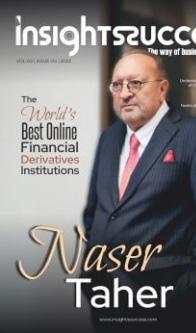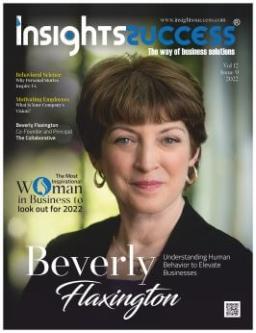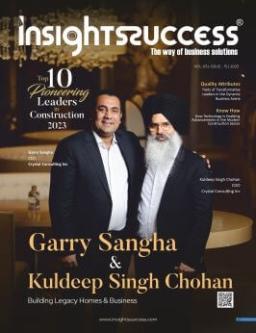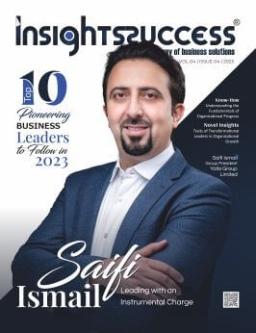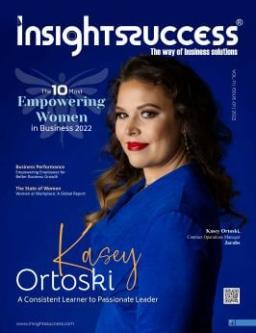
Inventor
Serenity Surrender


Get Featured In Where Top Business Minds share their Success Stories.
Scan the QR and fill the form.




Inventor
Serenity Surrender


Get Featured In Where Top Business Minds share their Success Stories.
Scan the QR and fill the form.



Intoday’srapidlyevolvingbusinesslandscape,conventionalmanagementapproachesandstandard
corporatetrainingprogramsfrequentlystruggletokeeppacewiththecomplexdemandsofmodern organizations.Whiletraditionalstrategiesoftenemphasizeperformancemetrics,operational efficiency,andpolicycompliance,theymayoverlookthesubtler,yetequallycritical,factorsthatshape workplacecultureandemployeesatisfaction.Asaresult,organizationsrisklowengagement,diminished well-being,andfragmentedteamdynamicsdespiteachievingshort-termobjectives.ShiviDuaaddresses thisgapbyshiftingthefocustotheoften-overlookeddimensionsoforganizationaldynamics,including emotionalalignment,relationalenergy,andoverallteamcohesion.
InsightsSuccessinitsexclusivefeatureEmpoweringWorkplaces:HowSerenitySurrenderRedefines CorporateTeamDynamicsrecognizesShiviDua,whobeganhercareerasanITprofessionalin corporateIndia,navigatingaperformance-drivenenvironmentdominatedbybenchmarksandtargets. Leveragingherindustryexperience,shefoundedSerenitySurrender(SS),acomprehensivesystemthat blendsspiritualinsightswithpracticalcorporatestrategiestoaddressenergetic,emotional,andrelational imbalances.Overthepasttwodecades,Shivihasrefinedthismethodology,enablingindividualstorelease mentalandemotionalblockages,fosterclarity,enhancecollaboration,andstrengthenaccountabilitywithin organizationalteams. SerenitySurrendersetsitselfapartfromtraditionalcorporatetrainingbyfocusing onunderlyinginternaldriversratherthanmerelymodifyingexternalbehaviors.
Shiviemphasizesthat“surrender”representsaformofself-empowerment,enablingindividualstomanage stress,minimizereactivetendencies,andengageauthentically.Byfosteringemotionalclarityandinternal alignment,SSaddressesworkplacetoxicityanddismantlesblamecultures,whilesimultaneously enhancingcreativity,innovation,andoverallteameffectiveness.Throughthisinnovativeapproach,Shivi redefinescorporatesuccess,illustratingthatorganizationsachievesustainablegrowthwhenhumanenergy, emotionalwell-being,andcollectiveaccountabilityarevaluedalongsideconventionalperformance metrics.
Haveagreatreadahead!





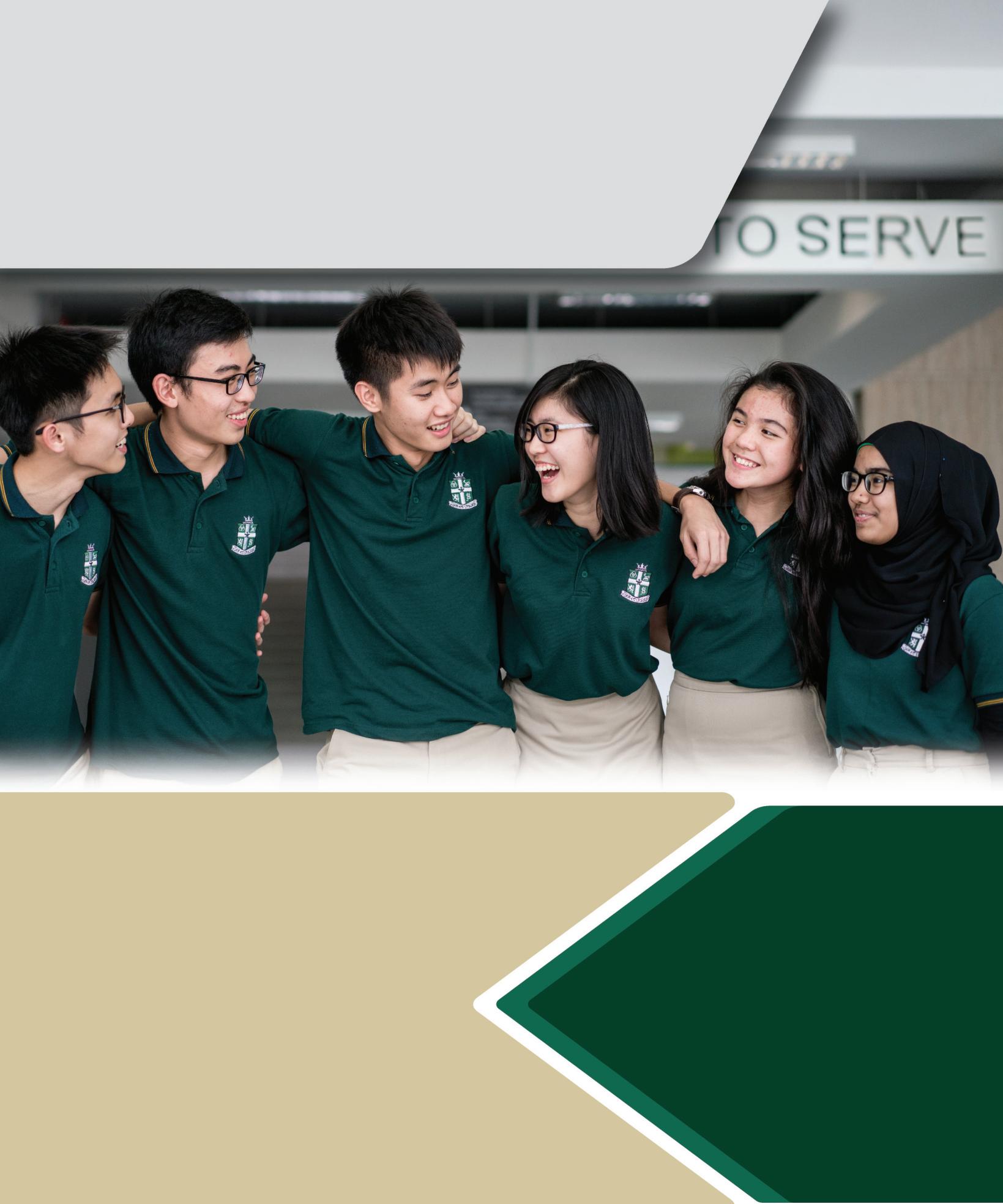




Empowering Workplaces: How Serenity Surrender Redenes Corporate Team Dynamics





Surrender is often confused with giving up. Inner surrender is self-empowerment, instead.
Contemporary management approaches often face challenges in keeping pace with the evolving expectationsoftoday'sbusinesslandscape.Inmany organizations,familiartrainingmethodsandupdatedpolicies alone may not be enough to nurture meaningful employee engagement, overall well-being, and a positive workplace experience. While traditional business metrics offer clear insights into performance, less visible dimensions—such as emotional alignment and cohesive team energy—play a crucial role in shaping organizational culture.As companies seek more lasting solutions, it becomes evident that genuine transformation is possible only when there is thoughtful attention to the human aspects of workgroup dynamics. Recognizingandsupportingthesesubtletiescanhelpcreatea workplaceenvironmentwhereeveryindividualfeelsvalued, connected,andempoweredtocontribute.
ShiviDuabeganhercareerasanITprofessionalinthefastpacedenvironmentofcorporateIndia,wherequarterlytargets and performance benchmarks shaped everyday priorities. Drawinguponheryearsintheindustry,shehasdevelopeda new paradigm for organizational change that focuses on exploring "energetic, emotional, and relational imbalances" underlying visible challenges in workplace culture. As the founder of Serenity Surrender (SS), Shivi has spent over
twodecadesrefiningasystemthatintegratesspiritualinsights with practical, office-based solutions. Her transition—from the routine of IT work to a career as a healer, trainer, and author reflects not just personal growth but a broader rethinkingofwhatitmeanstoachievelastingsuccessthrough inneralignmentandcollectivewellbeing.
More than two decades ago, Shivi first explored Reiki and ThetaHealing,experiencesthatplantedtheseeds.However, she was guided to a completely new modality, which she channelled in 2010, as Serenity Surrender (SS). SS, as a healing process, is a structured system designed to support individuals in living with greater love, peace, and joy by engaging with the energy both within and around them. As workplace challenges such as burnout and disengagement becameincreasinglyprevalent,Shivifocusedondeveloping an approach that addresses such issues at their deeper, energeticsource.
Shiviemphasizesthat“surrender”isoftenmisunderstoodas defeat, while she defines it as a form of selfempowerment an intentional choice to release internal resistance. This foundational idea shapes her strategy for

Shivi Dua Founder and Inventor Serenity Surrender
organizational change, suggesting that reducing mental and emotional blockages can promote clarity, calm, and collaborative action in the workplace. According to Shivi, difficulties within the workplace often reflect broader individualchallenges,suchasfeelingunheard,beingblamed withoutcause,publicsetbacks,andteamdisagreements.
What distinguishes SS from conventional corporate training is its focus on inner drivers rather than just surface-level behaviour changes. Shivi's model recognizes that feelings like loss, frustration, and fear—if left unaddressed—may transformintopatternssuchasworry,distrust,orwithdrawal, whichcancreatehiddenbarrierstoteamworkandinnovation.
SheclarifiesthatSSisnotmerelyamethodoratechnique;itis a framework that highlights the energetic, emotional, and relationalfactorsbeneaththevisibledynamicsofteams.
Shivi observes that today's workplaces tend to be saturated with information, leaving little space for reflection or deep listening. Multitasking and reactive thinking can lead to fragmented attention, which undermines group performance and increases stress. Her work highlights the impact of both personal and shared emotional habits on work relationships—especially how underlying fears can disrupt collaboration and creativity, fostering defensiveness rather thanopen,collectiveengagement,ultimatelyaffectinggroup performance.
“SSisn'tamethod,technique,ortool,actually,”Shiviasserts. “It is an alignment template that indicates what other techniques don't the energetic, relational, emotional imbalancesbeneaththesurface-leveldysfunction.”
Above all, Shivi observes that the emotional habits individuals bring to work especially unaddressed fears—can undermine teamwork and creativity, fostering defensive communication rather than open, constructive collaboration.
Shivi begins with the premise that when individuals get caughtupintheirthoughtsoremotions,theirabilitytochoose freely is hindered. For her, inner surrender means releasing internal congestion to enable clearer perception and more alignedresponses.
"Imagine walking into a crucial meeting already burdened with anxiety due to a prior email or criticism," she explains. "Thatresidueaffectstoneandclarity.Innersurrenderallows forreleasingthatinnerstaticsoonecomesinasoneself,not one'smostreactiveself."
Thisconceptappliesbroadlytounderstandinghowemotional states influence work. Human bodies often tense up with stress, and minds shut down due to emotional blockages. Shivi's approach focuses on "unclenching the internal pressure," allowing individuals to navigate situations with greaterclarityratherthanresistingwhatis.
The tangible benefits of this philosophy are evident in measurable outcomes. Individuals adopting the SS method tendtobeemotionallyhealthier,offeringstrongerleadership, clearer decision-making, and reduced mental clutter. This translates into greater efficiency and improved team performance by fostering responsive rather than reactive communicationstyles.
Among Shivi's significant contributions to organizational designisherworkontransformingblamecultures.Sheviews blame not simply as a behaviour to be corrected through policiesortraining,butasasymptomofunderlyingfearsand unresolvedemotionalwounds.

We seek to dissolve the noise that blocks trust and bring about inner alignment in individuals.
"Blame culture is not finger-pointing," she explains. "It's a culture where people seek to shift blame to avoid accountabilityorconsequences,errorsarehiddenratherthan learned from, and conversations focus on 'who did what' insteadof'what'sneedednow.'"
Her approach addresses blame culture on multiple levels. First, she identifies fear—particularly fear of discovering difficult truths—as a primary driver of blame. Second, she highlights the internal confusion and self-doubt that fuel defensive projections By clearing mental clutter and emotionalbuildup,individualsbecomebetterabletorespond thoughtfully rather than react impulsively in challenging situations.
Additionally,SSrecognizesthatblameoftenstemsfrompast emotional challenges—such as previous mistakes, struggles with authority, or difficult peer relationships—that create unconscious defense mechanisms. Offering a safe way to release stored emotions without forcing overt expression allowsindividualstomoveforwardfreefrompastburdens.
Finally,Shiviemphasizesthatcultivatingperspective-taking and energetic alignment naturally encourages ownership rather than self-preservation. When individuals feel secure and centered internally, accepting responsibility becomes a naturalandconfidentchoiceratherthanasourceoffear
While much of Shivi's 20 years of practice has focused on individuals, this work has deep relevance for organizations today. Healthy individuals form the foundation for healthy teams,andcultivatingemotionalclarityandresponsibilityat the personal level is essential for building collaborative, resilientworkplaceculturesreadytothrive.
TheHolisticFrameworkforTransformation
The SS Corporate Program provides what Shivi calls a completechangesystembywhichgroupscantransitionaway
from unconscious modes of functioning, into conscious, integrated, and emotionally safe workspace. The change arises from the combined effect of widespread individual healing and group processes that reconnect individuals with themselvesandwithoneanother
Internal locus of control is the secret to this approach. "To move in to find out what one is experiencing as a result of others and the environment is more empowering than it seems," Shivi states. "It puts control into the individual's hands where it ought to be. It is blaming the externals that disempowersapersonbecausethentherereallyisn'tanything onecandotoenhanceone'sexperience."
It is an approach different from traditional team building or conflict resolution, focusing on inner awareness and emotional self-control to handle difficult situations. Rather thantryingtochangeoutsidefactorsorotherpeople,SShelps individualsfindclarityandeasewithinthemselves,nomatter thecircumstance.
OneofthechallengesSSaddressesishowtomeasuresubtle yet significant changes Unlike traditional training that focuses on outward behaviour, SS works on shifting the "internalenergeticandemotionalbaseline"ofindividualsand teams.
Shivi'sassessmentlooksatchangesinareaslikeclearversus unclearthinking,thoughtfulversusreactiveresponsesunder pressure, openness to difficult conversations, team engagement, making thoughtful decisions instead of rushed ones, quicker recovery from conflicts, and overall team energy.
“These shifts take root deeply,” she explains. “Though they maystartquietly,theyshowupinhowpeoplelead,listen,and interactovertime.”

People don't leave companies for salary alone, they leave because of feeling unheard, unseen, unacknowledged.

Thisreflectsadeeper,moresustainablekindofchange—one thathappensatthelevelofhowpeopleare,notjustwhatthey do. Instead of measuring only outcomes and behaviours, SS focuses on the internal states and energy that drive those actions.
ThisframeworkisdesignedtobeapracticalsupportforHR leaders and teams, helping create healthier workplace dynamics and sustaining meaningful change in daily operations.
"Peopledon'tleaveorganizationsjustbecauseofpay,"Shivi remindsus."Theyleavebecausetheyfeelunheard,invisible, or undervalued. Teams burdened with unresolved stress or burnoutalsobecomepointswherepeoplechoosetoexit."
By helping release the emotional burdens that cause dissatisfactionandguidingemployeestowardsaclearersense
of purpose, SS supports organizations in building cultures where people naturally want to stay and develop. Retention, in this view, flows from internal alignment rather than externalrewards.
Shivi defines engagementas genuine passion, not merely an outcome Disengagement often results from feeling overwhelmed, out of sync, or drained signs of an emotionallyunsafeenvironmentthatleadstowithdrawal.By clearing emotional blockages and reconnecting individuals withtheirnaturalflow,SShelpsrestoreenergyandauthentic motivation.
Innovation,Shiviobserves,ishinderedwhenpeopleoperate fromstressandfear Hypervigilanceforself-protectionlimits access to what she calls "intuitive intelligence and creative flow."Byreducingfearofjudgmentandreleasingoldpatterns offailure,SSfostersthereturnofnaturalcreativityandfresh ideas.


Five years later, Shivi sees a significant shift in how companies prioritize team wellbeing and empowerment Instead of treating mental and emotional health as an HR afterthought,organizationsarenowmakingthemcoretotheir cultureandstrategy
She believes this shift is essential: “Companies will realize that rising burnout, disengagement, and concentration challenges are costing more than ever before.” This awareness will move leadership from relying solely on external controls to valuing inner awareness, balance, and clarity—eveninhigh-stresssituations.
ForShivi,thefutureofsuccessliesinhowdeeplyemotional clarity and inner alignment are woven into productivity strategies. This approach redefines corporate success by focusing on sustainable performance rather than short-term wins, paving the way for more resilient and empowered teams.
Sincethefirstworkshopin2010,SShasgrowntobecomea global phenomenon with more than 30, offline and online, coursesandapresenceindifferentgeographiesandcultures. ItsexpansionfromIndiatotheUK,USA,Australia,andthe MiddleEastisatestamenttoitswidespreaduseinallaspects ofhumanbehavior.
Shivi'sbooks,suchas"LetthePowerBewithYou,""LetGo Mom...Iwillbefine,"andhermostcomplexbook,"Eternity," provideeasyaccessforanyonewillingtolearnandimplement SS principles. The books utilize personal experiences, case studies, and divine revelations to guide people to empowerment and freedom. Her most recent book, “My Shape,” co-authored with Gaurav Dua, her husband and a veteran corporate leader, beautifully meshes human relationshipsandcorporaterealities.
Shivi founded "Breathe - Exhale Your Toxins" in 2021, yet another modality that would enable people to consciously release stress and emotional burden from themselves. This one teaches effective techniques for continuous body and emotionalhealingthroughmindfulreleasemethods.
Shivi is a highly experienced and dedicated practitioner of change, having invested over 20,000 hours mastering her energy-healing craft She combines deep expertise with practicalinsight,navigatingcorporateculturesthatareoften cautiousaboutunconventionalapproaches.
HerjourneyfromanITconsultanttoaspiritualteacheroffers a relatable example for many corporate leaders seeking to redefinesuccess.Herownbackgroundlendscredibilitytoher contention that company-level transformative change will needtostartwithinnerworkatthepersonallevel.
Participants often speak of the deep personal impact of her work. One reflects, “It was a state of being, a sense of wholeness,fulloflove.”Anothershares,“Ifeelbraverfacing life because I know I'll be recognizing myself through all circumstances.”

SS is not a workshop, method or tool in the traditional sense. It is an alignment framework.
At the heart of Shivi's work is a vision for a new kind of business success—not measured by productivity alone, but groundedininneralignment,emotionalcoherence,andwhat shecalls"soul-ledcollaboration."
Thisvisioncallsfordeepculturalchange,wheretransparency replacescontrol,resonanceoutweighsreactivity,andhuman presenceisvaluedalongsidetraditionalperformancemetrics.
Byshiftingtheinternalnarrativesthathindertrust,SShelps create truly connected teams built on genuine alignment rather than fear-based compliance. “We have to shatter the cacophony that breaks trust, and build inner harmony in people and between communities, and that will cascade into harmonious teams,” Shivi explains, capturing the ultimate aimofherapproach.
Shivi's work extends far beyond individual companies, offering the potential to transform society at large By reimagining workplaces as spaces for healing, growth, and genuine collaboration, her approach can influence not only howweworkbutalsohowwerelatetooneanotherinallareas oflife.
Herblendofpersonalresponsibilityandempathyprovidesa valuable framework for resolving conflicts and dysfunction not only within organizations but also in communities, schools, and even international relations Shivi's core philosophy that "any situation which looks like a problem contains its own solution" offers hope for addressing problems that seem insurmountable from conventional viewpoints.
As businesses face complex issues like virtual work environments, generational differences, and fast-changing markets, Shivi offers a balance not through external models but by fostering internal alignment. She suggests that the greatest long-term competitive advantages will come not from technology or market positions, but from collective emotionalintelligenceandenergeticharmonywithinteams.
In a time when traditional organizational structures and managementstylesoftenfallshortinaddressingcomplexity, theSerenitySurrenderpathoffersaprofoundalternative.By learningtorecognizeandrespondtosubtleforcesatplay,her method opens avenues for change that honour both human dignityandbusinesssuccess.
Shivi's own journey—from a software professional to a spiritual guide—reflects the transformation she supports in others.Sheemphasizesashiftfromoutward-focusedthinking to inside-out alignment, which simultaneously enhances external performance. As more organizations acknowledge the limits of purely rational approaches to human collaboration, Shivi's integration of spiritual insight and practical wisdom provides a sustainable, fulfilling way forward.
Ultimately,themeasureofherimpactisnotjustinnumbers, but in the thousands of individuals empowered to embrace t r a n s p a r e n c y , a b u n d a n c e , a n d t r u e cooperation transforming workplaces once marked by tension, competition, and defensiveness This quiet revolutionholdsimmensepromiseforreshapinghowpeople worktogethertowardssharedgoals.
In case you want to know more or book an introductory call with Shivi - please contact dua g27@hotmail.com or WhatsApp9650448829.
Intoday'scompetitivebusinessenvironment,leadership
isnolongerafunctionofageandcontrol.Successful businessleadersaredifferentiatedfromtherest throughtheintegrationofpersonalitytraits,professional abilities,andinfluenceoverothers.Theynotonlygenerate economicperformancebutalsorealizeitthrough organizationalculturecreation,innovation,andenduring valuecreation.Leadershipstyleswilldifferbycompany andbyindividual,butcertainfundamentalcharacteristics alwaysarepartoflong-termsuccess.Theseinclinationsare notdevelopedinisolationconfinementbuttypicallyover timebyexperience,steadylearning,andthecapacityto adapttonewsituations.Throughastudyofthese characteristics,futureleadersandCEOscanlearnabout whatleadershiplookslikeinpractice.Thesubsequent subsectionsdiscussthemostsignificantqualitieswhich definesuchexcellentbusinessleadersandhelpthem survivestormsaswellasinstillgrowthandresiliencein theirenterprises.
Oneofthemostcommonvirtuesofsuchexcellentbusiness leadersisthattheypossessthecapabilitytodevelopa powerfulvisionandleadtheirfirmstowardit.Visionbrings meaningandpurpose,andisabeaconofguidancefor followersandleaders.Amaturevisioninspiresand motivatespeople,andgathersdisparatestakeholdersontoa singleagenda.Visionaryleadersarenotboundbyrealityas itcurrentlyexistsbutarevisionaryandcanperceivetrends, disruption,andopportunitythathasthepotentialtorestart thebusiness.Leadersaregoodatturningadversityinto opportunityandfindingpossibilityinwhatstandsintheir path.
Strategicthinkingmakesvisionpossiblebydissectingit intoconcretespecificstepsofaction.Successfulleaders constructplansthatmaintainshort-termresultsinatenuous balancingactwithlong-termsustainability.Theycan unravelcomplications,weighoutcompetingideas,and arriveatdecisionsthatareincorporatebestinterests. Throughit,theysetuptheirbusinessesnotjusttosurvive marketfluctuancesbuttotakeadvantageofopportunities forgrowth.Thiscombinationofvisionandstrategy
emboldensleaderstobeproactive,resilient,andableto guidetheirorganizationsthroughtoughtimes.
Inadditiontotechnicalability,effectiveleaderspossess highemotionalintelligence.Theyunderstandthat leadershipisasmuchaboutpeopleasprocessoroutcome. Emotionalintelligenceenablesleaderstounderstandand relatetothewaythattheteammembersfeel,seefroman incrediblybroadsetofviewpoints,anddevelop relationshipsinagenuinesense.Leaderswhoare empatheticestablishtrust,loyalty,anddriveandtherefore anorganizationalcultureinwhichtheemployeesfeel appreciatedandmotivatedtoperformtothehighest. Throughtheirownemotionalregulationandpositive reactionstoothers,theseleaderscreateorganizational culturesofcollaborationandcreativity.Effective communicationisanotherequallyimportantqualitythat facilitatesthefunctioningofemotionalintelligence.
Effectiveleaderscanarticulateadvancedconceptsinsimple terms,mobilizegroupsaroundcommonissues,and dissipatefearsbluntly.Communicationisnotjust communicationofinformationbutevenlisteningactively andbelongingtoasocialgroup.Effectivecommunication leadersmakesuretheirpeoplearewell-informed,wellmotivated,andonthesamepageasfarasthelong-term goaloftheorganizationisconcerned.Emotional intelligenceandthecommunicationskillformthepillarof successofinterpersonalrelationships,conflictresolution, andorganizationalalignment.
Today'sbusinessclimateischaracterizedbyrapidrateof technologicalchange,fluctuatingconsumerpatterns,and unpredictabilityeverywhere.Oneofthekeycharacteristics ofeffectiveleadersinthefast-pacedbusinessworldtodayis flexibility.Theyareflexibleintheirresponsetochange, alteringstrategywithoutforgoinglong-termobjectives. Flexibilityinleadersallowsthemtoexperiment,accept innovation,andisneverafraidtoshiftdirectionwhenitis appropriate.Thistypeofstylenotonlygeneratesresilience

butalsoenablesorganizationstoflourishintheeraof disruptionandtransformation.Withtheadoptionof flexibility,theleadersimpartfaithandnimblenessintothe organizationssothattheycanrespondtochallengeswith imaginationandsuppleness.Nolessimportant,however,is ethicalintegrity,andthisisasimplexvirtueofadmired leaders.
Integrityfosterstrust,notonlywithinorganizationsand theiremployees,butalsowithoutsidepartiessuchas customers,partners,andregulators.Value-drivenleaders enhancetheircredibilityandprotectorganizationsfrom reputationaldamage.Ethicalleadershipalsoinfluences cultureandpromotesvalue-baseddecision-making includingfairness,transparency,andaccountability. Integrityhelpstoachievelong-termsuccessona sustainablebasisasitworkstoestablishlong-lasting relationshipsandprovidelong-termsupporttothepillarsof ethicsonwhichqualityleadershipisbuiltupon.
Thebestattributesofgoodbusinessleadersfarexceed technicalskillsorcommandandcontrol.Visionand strategicvisionenablethemtomapthecourseaheadforthe future,andemotionalintelligenceandcommunications skillsenabletheirteamstoremainfocusedandenergized. Theirabilitytoadaptenablesthemtomapthedynamismof theworldtoday,andethicalintegritysetstheirleadership ontrustandaccountability Thesetraitsarebuiltthrough self-perception,learning,andcommitmenttoselfimprovement,whicharelifelongprocessesasyoungleaders arebuildingtheirpersonalities.Effectiveleadershipis establishedthroughvisionbuilding,emotionalintelligence development,embracingchangeandadherencetoethics. Theseleadershaveacrucialroletoplayincreating sustainablefuturesandmakingimpactfulchangeinaneverevolvingworldofbusiness.
Inaneraofrapidtechnologicalchange,globalization,
andintensemarketcompetition,theroleofeffective businessleadershiphasneverbeenmorecritical. Leadersareexpectednotonlytosetthestrategicdirection oftheirorganizationsbutalsotoinspireteams,navigate uncertainty,makeinformeddecisions,anddrivesustainable growth.Strongleadershipgoesbeyondauthority;itis definedbytheabilitytoinfluence,motivate,andempower otherswhilebalancinginnovation,operationalefficiency, ethicalstandards,andlong-termvision.Organizationsled byskilled,visionary,andstrategicleadersarebetter positionedtoadapttoevolvingmarketdynamics,cultivate high-performingteams,andachieveenduringsuccess. Effectiveleadershiprequiresadeliberate,thoughtful approachthatintegratesstrategicthinking,emotional intelligence,clearcommunication,stakeholderengagement, andafocusonteamresilience.Bymasteringtheseessential strategies,businessleaderscancreateacultureof excellence,fostercollaboration,enhanceorganizational agility,andensurethattheirorganizationsremain competitive,adaptable,andsustainableinthefaceof complexandrapidlyevolvingchallenges.
Oneofthemostfundamentalstrategiesforeffective businessleadershipisthedevelopmentofaclearand compellingvision.Awell-definedvisionprovidesdirection, purpose,andmotivationforboththeleaderandthe organization.Itactsasaroadmapfordecision-making, aligningresources,efforts,andstakeholderexpectations towardachievingstrategicobjectives.Leaderswho articulatetheirvisionclearlyenableemployeesto understandthebroadergoalsoftheorganization,fostering engagement,commitment,andasharedsenseofpurpose.
Equallyimportantistheabilitytomaintainstrategicfocus. Inabusinesslandscapecharacterizedbyrapid


technologicaladvancements,evolvingmarketdynamics, andshiftingcustomerpreferences,leadersmustprioritize initiativesthatdrivesustainablegrowth.Thisrequires continuousassessmentofopportunitiesandrisks,aswellas theflexibilitytoadaptplanswhennecessary.Strategic focusensuresthatresourcesareallocatedeffectively, preventingtheorganizationfrombeingdistractedbyshorttermtrendsornon-essentialactivities.Leaderswhobalance visionarythinkingwithdisciplinedexecutioncreatea strongfoundationforenduring,measurablesuccess.
Emotionalintelligenceisacornerstoneofeffective leadership.Leaderswithhighemotionalintelligenceare awareoftheirownemotions,understandtheemotionsof others,andcanmanageinterpersonalrelationshipswith empathy,patience,andtact.Thisabilityenablesleadersto buildstrongconnectionswithteammembers,navigate conflictsconstructively,andfosterasupportiveand inclusiveworkenvironment.Emotionalintelligencealso enhancesdecision-makingbyencouragingleadersto considerdiverseperspectives,organizationaldynamics,and thehumanimpactoftheirchoices.
Effectivecommunicationiscloselyintertwinedwith emotionalintelligence.Leadersmustbeabletoconvey ideas,expectations,andfeedbackclearly,persuasively,and consistently Transparentcommunicationpromotestrust, credibility,andaccountabilitywhilereducing misunderstandingsthatcanhinderorganizational performance.Inaddition,leaderswhoactivelylistento theirteamscreateanenvironmentwhereemployeesfeel valued,respected,andempowered.Bycombining emotionalintelligencewithstrongcommunicationskills, leaderscaninspirecommitment,encouragecollaboration, anddrivehigherlevelsofperformanceandengagement acrosstheorganization.
Innovationisakeydriverofcompetitiveadvantageinany industry.Effectiveleaderscultivateaculturethat encouragescreativity,experimentation,risk-taking,and continuousimprovement.Thisinvolvesproviding employeeswiththefreedomtoexplorenewideas, supportingprofessionaldevelopment,mentoringemerging talent,andrecognizingcontributionsthatleadto meaningfuloutcomes.Leaderswhoembraceinnovationnot onlyimproveproducts,services,andprocessesbutalso
enhanceoperationalefficiencyandmarketresponsiveness, positioningtheorganizationforlong-termgrowthand success.
Buildingresilientteamsisanotheressentialleadership strategy.Resilienceenablesteamstoadapttochallenges, recoverfromsetbacks,andmaintainhighperformance underpressureanduncertainty.Leaderscanfoster resiliencebypromotingcollaboration,recognizing achievements,celebratingprogress,andprovidingsupport duringperiodsoforganizationalormarketdisruption. Additionally,empoweringemployeestotakeownershipof theirwork,makeinformeddecisions,anddevelopproblemsolvingskillsstrengthenstheteam’sabilitytorespond effectivelytochange.Bycombiningafocusoninnovation withteamresilience,leaderscreateanorganizational culturethatisbothagileandsustainable,capableof navigatingcomplexanddynamicbusinesslandscapes successfully.
Effectivebusinessleadershipisthecornerstoneof organizationalsuccessandlong-termsustainability.Leaders whocombineaclearvision,strategicfocus,emotional intelligence,andtheabilitytofosterinnovation, adaptability,andresiliencearebetterequippedtoguide theirteamsthroughchallengesandopportunitiesalike.By implementingthesestrategiesthoughtfullyandconsistently, leadersnotonlydriveperformancebutalsocultivatean organizationalculturethatvaluescollaboration, accountability,continuousimprovement,andemployee engagement.Leadershipisacontinuousjourneyofgrowth, learning,andadaptation.Executiveswhoprioritizepersonal andprofessionaldevelopment,remainopentofeedback, andconsistentlyapplytheseessentialstrategiescaninspire theirteams,navigatecomplexanduncertainbusiness environments,andachievesustainable,long-termsuccess. Ultimately,strong,visionary,andaccountableleadershipis thedrivingforcethattransformsstrategicvisioninto tangibleresultsandensuresthatorganizationsthriveand remaincompetitiveintoday’sdynamicglobalmarketplace.
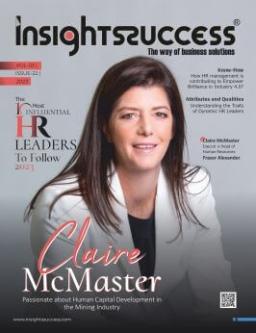



www.insightssuccessmagazine.com
